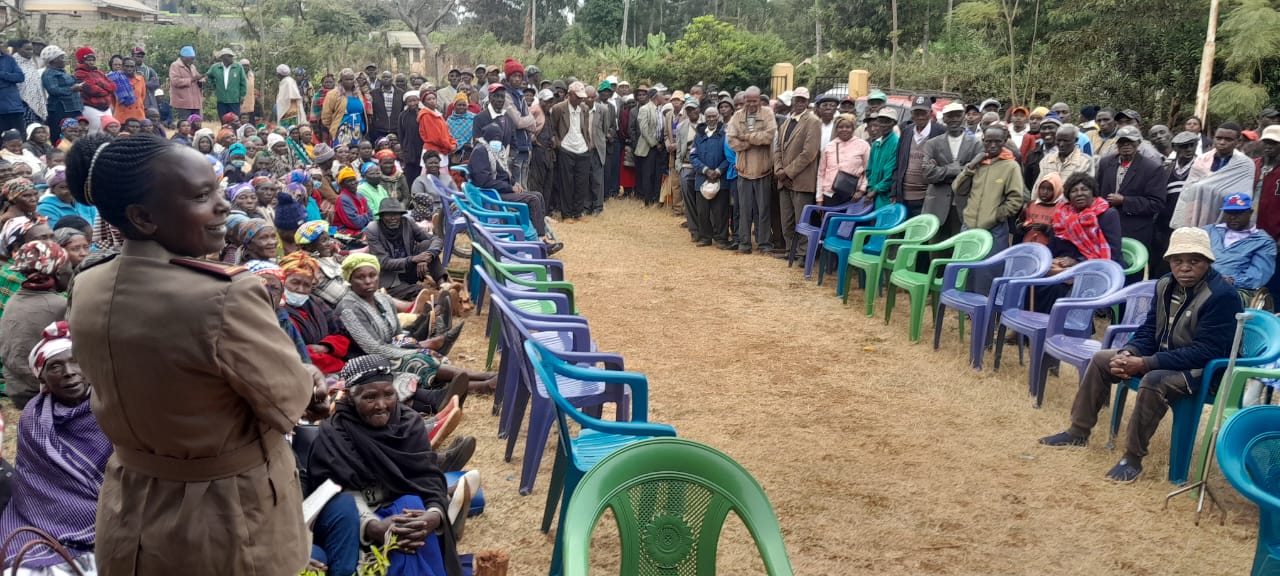Over 6,000 youth from Laikipia County are set to benefit from the third phase rollout of the National Hygiene Program dubbed Kazi Mtaani.
Laikipia County Commissioner Joseph Kanyiri said that a total of 6,809 cohorts had been selected for the program set to kick off in a week’s time out of the 9,160 applications received for the same in the region.
Speaking at his Nanyuki office yesterday when he chaired a meeting to strategize on the rollout, the County Commissioner added that unlike in the previous two phases, the cohorts would be deployed in rural areas at the ward levels as opposed to just working in urban centres.
Kanyiri further said that the program that would run for the next three months would target those aged between 18-35 years who would be engaged in clearing bushes on roadside, unblocking drainages in towns, and also tree planting in forests.
Laikipia County Director of housing John Maina who will also oversee the program roll out said that the cohorts would be encouraged to be peace ambassadors where they would advocate peaceful coexistence in communities they come from by discouraging vices such as cattle rustling, drug abuse, and brewing of illicit brews.
“We are also looking forward to having skills transfer for the cohorts who will learn from those among them who have trained in various fields, especially in artisan and craft courses,” Maina said.
The program started by President Uhuru Kenyatta in April 2020 in the wake of the Covid-19 pandemic was meant to cushion workers who had lost jobs due to the ravages of the pandemic by engaging them in clean-up of urban centres and informal settlements across the country.
The objective of the Kazi Mtaani program was to provide a form of social protection for workers whose prospects for daily or casual work have been disrupted by the containment policies put in place to limit the spread of COVID-19.
The program is also structured as a local economic recovery program that aims to restore disrupted economic activity in informal settlements while creating a public good.

